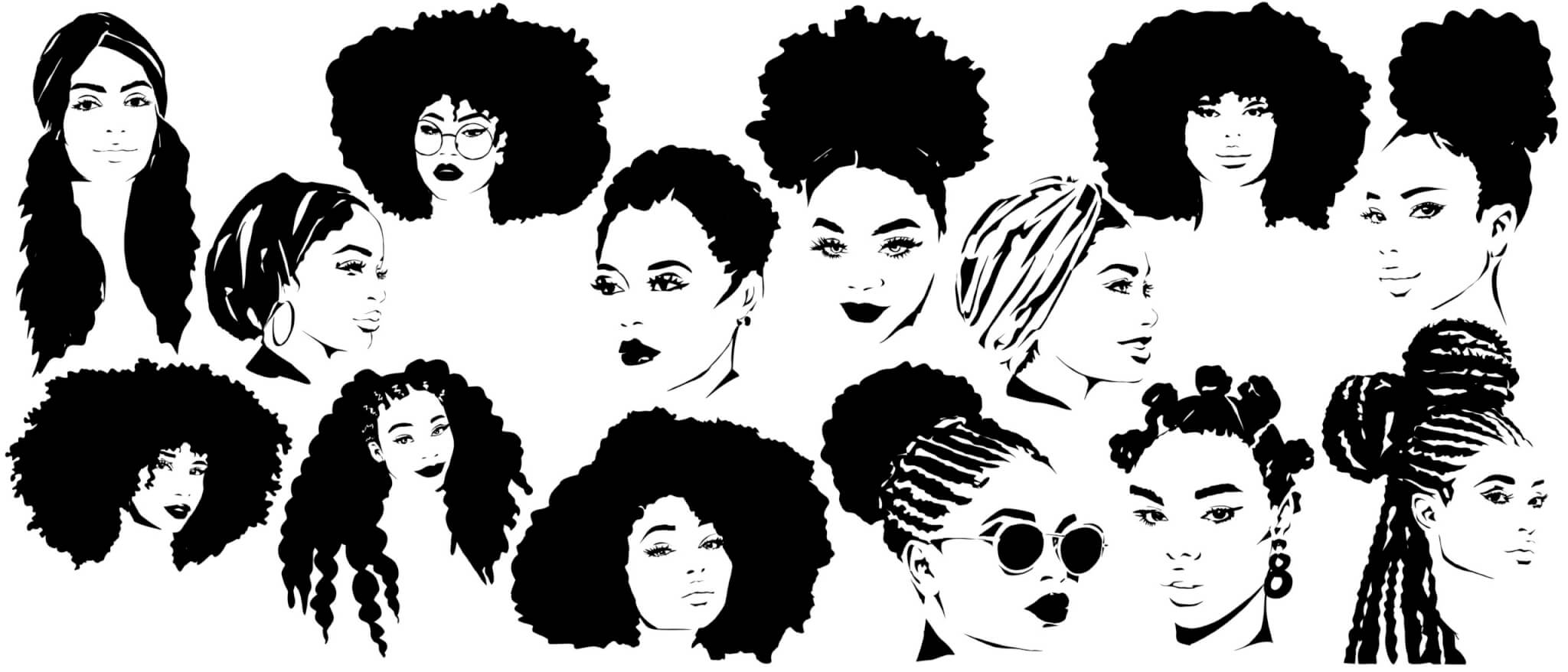
Hair and Beauty: Celebrating Individuality Within the Black Community
Filed Under: Market Research, Black / African American, Multicultural, CPG, Health & Beauty
Ashleigh Williams
Senior Director, In-Person Qualitative Research
Jaelynn Theobalds
Associate, Communities & Panels
As we continue our celebration of Black History Month, we, at C+R would like to spotlight one of the more popular ways that members of the Black community express themselves and their individuality—through hair, beauty, and grooming. Hair, grooming, and beauty have always provided powerful means for personal expression, while also dispelling negative stereotypes associated with the Black community. As the years progress, how the Black community expresses creativity and individuality through hairstyles and hair care routines is continuously evolving. This has led to a growing trend of embracing stylish choices while also prioritizing optimal hair health. Hair styling, in particular, has shifted from focusing on assimilation to expressing one’s individuality. Finding the right products to achieve these styles is pivotal, and Black consumers will not settle until they find the best products with the right formulas and nutrients for their unique textures. The proliferation of Black-owned brands and products specifically tailored to the needs of the Black community has greatly facilitated the attainment of these goals.
The Importance of “Showing Out/Off” and Presenting Their “Best”
Within the Black community, hair is seen as one of the leading contributors to making a positive first impression. Following the era of slavery, modifying the look of their natural hair became a way for members of the Black community, especially women, to assimilate, or conform, to the prevailing beauty standards promoted nationwide. Women straightened their hair primarily in an effort to match the Eurocentric ideals, as well as to be accepted by employers and schools, as most did not view styles showcasing their natural hair texture to be professional. However, policies such as the Crown Act have created an environment in which Black community members can feel comfortable embracing their hair textures without fear of retaliation. Now, they adopt a range of styles from those originating in Africa to more modern styles. Although hair is still considered important in how they present themselves to the world, the primary goal of hairstyles now is self-expression, focusing on what they feel looks good on them, because when they feel good, they look good; their confidence is improved, resulting in positive thoughts and interactions with their community and the world around them.
C+R’s POV:
- Embrace Authenticity in Representation: Brands should showcase a wide range of hairstyles and appearances that reflect the diversity within the Black community. This includes featuring natural hair, locks, sponged, and various styles that individuals choose to express their identity.
- Support Self-Expression: Encourage self-expression by offering products that cater to a variety of hair types and styles within the Black community. Brands should recognize hair as an important aspect of personal beauty and identity.
- Educate Consumers: Provide education about the cultural significance of hair within the Black community through marketing campaigns or informational content, helping to foster understanding and appreciation among a wider audience.
- Look inward to ensure bias does not affect your own corporate polices: Advocate for acceptance of all hairstyles in professional settings, challenging norms that may deem certain looks as ‘unprofessional. Take a stand on social issues affecting Black communities and show commitment through actions such as supporting relevant causes or implementing inclusive hiring practices.
Strategic Shopping Behavior and the Importance of Authentic Black-owned Brands
The right hair care products are essential to building a beneficial hair care routine and achieving the desired style. Because the products play such a key role, Black consumers are open to exploring new products until they find one that works well with their hair and helps them to achieve their desired result with a dual benefit of shortening the time required for the hair maintenance process. They tend to gravitate toward Black-owned hair care brands and product lines because they are made specifically for them and their hair textures. Many have experience using products owned or created by other cultures, but these products are often formulated without their texture in mind, and therefore, either a lot of product is necessary to nourish, protect, and style their hair, or the product damages their hair. When a Black-owned brand gains success and starts to be sold widely, it can be exciting for the community. Yet, this success sometimes comes after the owner sells to a larger, non-Black-owned corporation that changes the formulas, resulting in the products not working as well for most Black consumers. When this happens, Black consumers feel a sense of abandonment and often restart their search for products that complement their hair texture and daily practices. In addition, Black consumers often find it difficult to reconcile other cultures profiting off of such a sacred practice as hair care.
C+R’s POV:
- Diverse Product Formulation: Brands should consider creating products that cater to a diverse range of hair textures and skin tones, especially for individuals who may not fit into one specific racial category. This includes offering options for people of mixed heritage who find it difficult to find beauty products without having to mix different shades or formulations.
- Support Black-Owned Businesses: There is a clear preference for Black-owned products because they are perceived as brands that are specifically curated for the Black community. Brands can collaborate with or support Black entrepreneurs and businesses in the beauty industry to foster trust and authenticity.
- Cultural Representation: Ensure cultural representation is at all levels, from ownership to employees who understand and can educate customers about Black culture and their needs.
Authentic Engagement with Black Culture: To avoid being seen as merely profiting off of Black culture, brands should engage authentically with the community through education, representation, and investment in understanding the specific needs of Black consumers.
explore featured
Case studies


